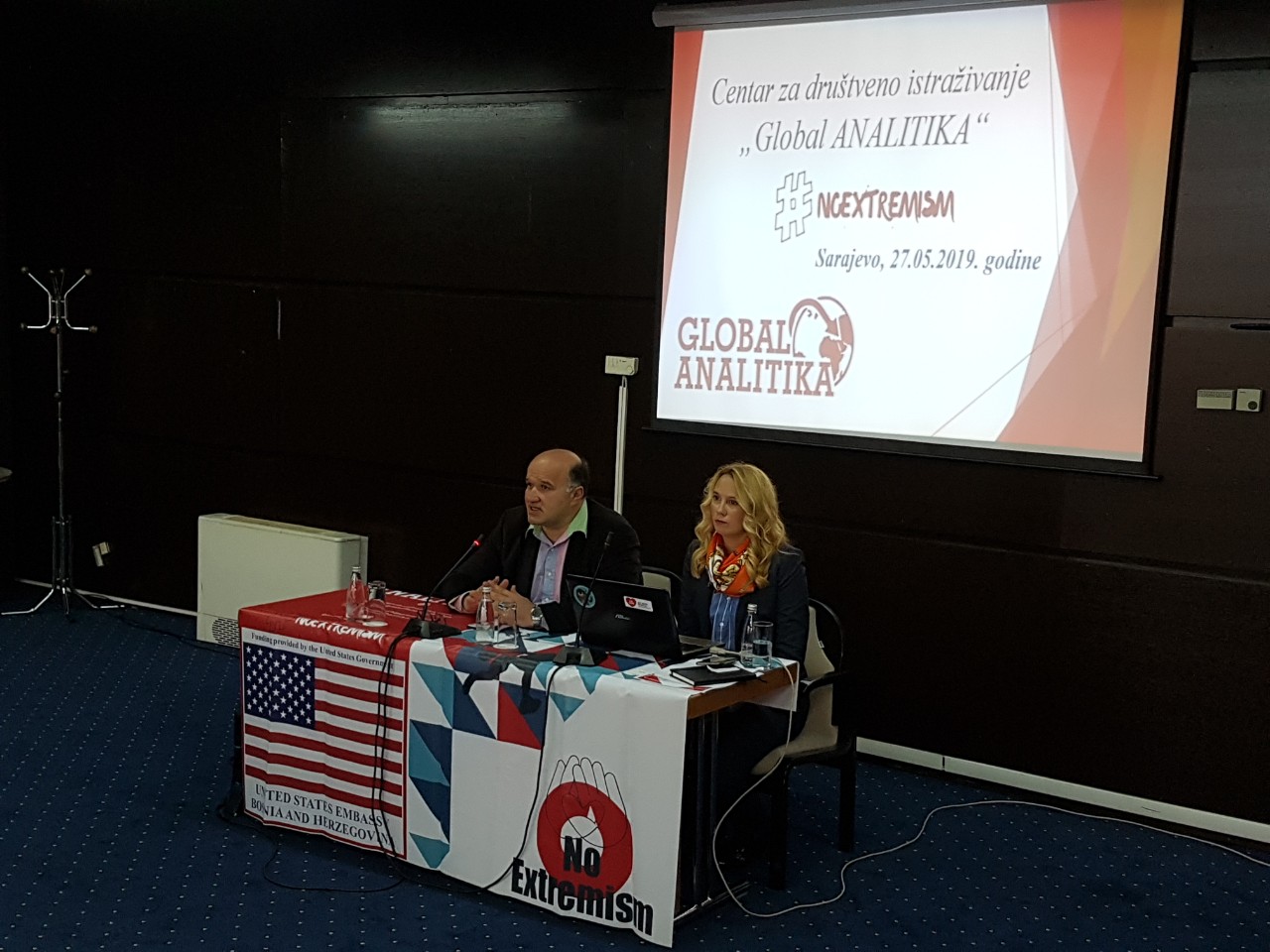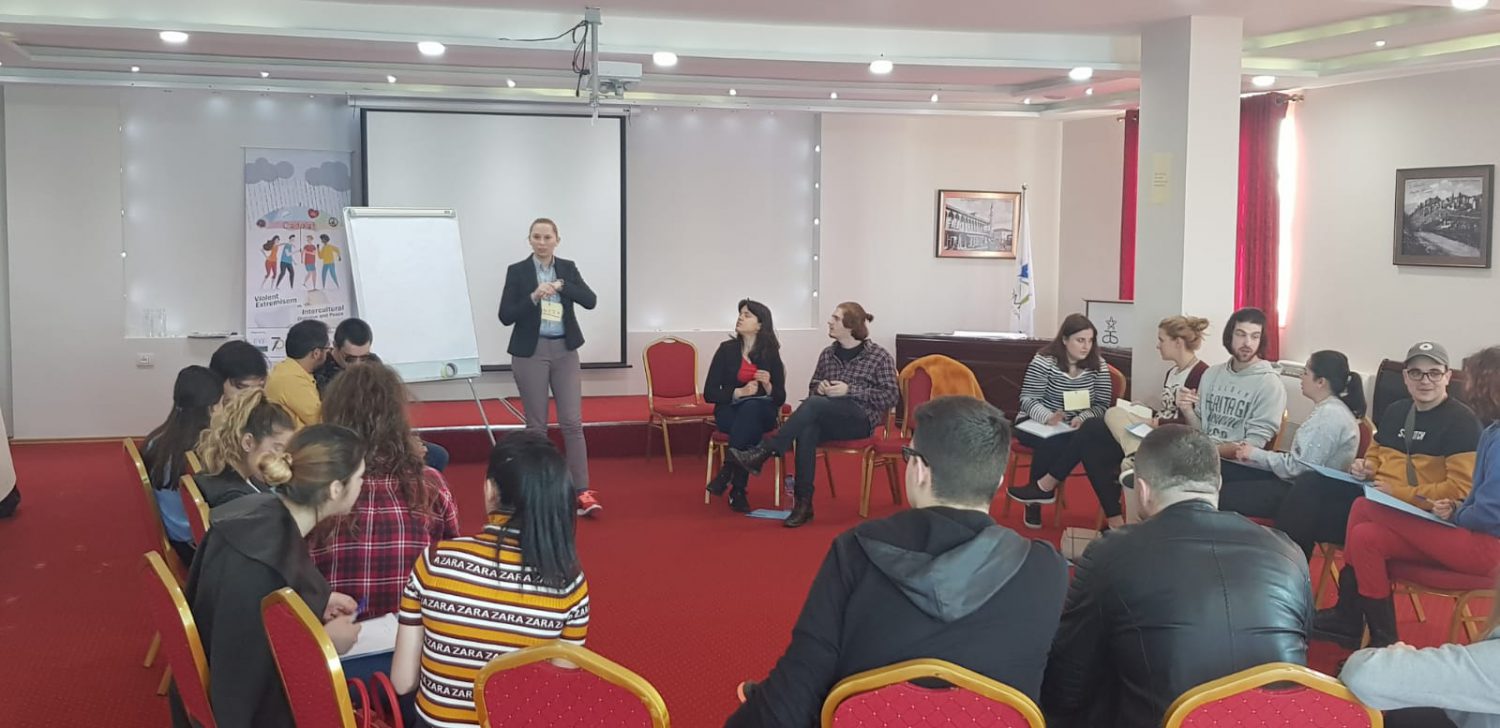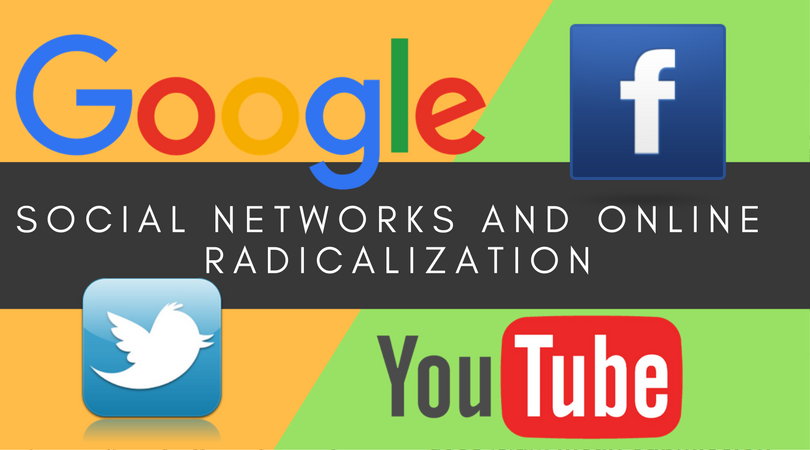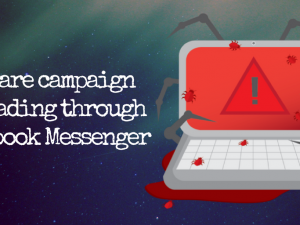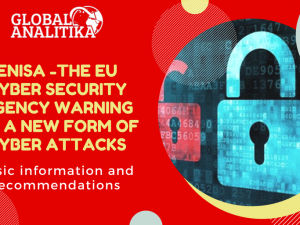Individuals and organizations around the world have accepted the use of the Internet for simplicity, as well as numerous benefits in terms of reaching the broadest masses, as well as achieving efficiency and effectiveness in delivering their messages. Their use of the Internet is reflected firstly for the purpose of their own promotion and their goals, by placing images, video content, sharing news and informative articles, as well as collecting feedback and money, and most importantly, communicating with others.
Today, most people have devices that allow access to the Internet and social networks and spend more time using them, consuming a whole range of information and creating their virtual communities. Extremists and criminal organizations also use ease of access to these platforms and use them for recruitment, radicalization or even training. The Internet is much more fertile than the conventional methods used earlier. By combining traditional websites and social networks such as Facebook, Twitter and YouTube, extremists spread their ideas, promote their views on the world, try to provoke the negative sentiment of the target group towards the population they portray as enemies, incite violence, glorify sacrifice in the act of that violence, create online communities made up of like-minded people, and they find justifications for proposed activities and try to use new members to further expand their network.
- The Internet and social networks as a means of spreading extremist ideologies and online radicalization
Extremists deliberately choose and publish content that will cause a strong emotional reaction with their potential members, and by doing so, they will try to influence potential members from the psychological aspect by sending a message. In addition, they publish instructions on how to construct explosive devices, publish video content with attacks, as well as many lectures filled with their radical views. No other form of online communication has remained unused by radicals, so they regularly use chat rooms, dating sites, messengers to interact with potential members. An important propaganda tool for extremists is the creation of a large number of false profiles trying to create an image that there is a critical mass of people who support their idea.
The problem is getting bigger because online radicalization has become a system of connected vessels, so one radicalization causes and instigates the other. Social networks become a place for the action of religious radicals, racists, and even people who consciously use the fear of others for the purpose of making a profit. Terrorist groups use the Internet for the purpose of collecting donations, so the report on ISIL’s financials for 2015 compiled by the Center for the Analysis of Terrorism states that 5% of the group’s income is made up of donations collected in various ways, among others, by acting on social networks.
- Facebook, Twitter, and Google contribute to the fight against extremism and recruitment
Social networks have taken certain measures to put an end to this monster, but this is only a small effort in a series of measures to be taken to make the Internet safer in the context of extremism. Twitter took the first significant steps by removing a large number of profiles with extremist messages. This social network has begun to remove unwanted content in 2015. The following year, the activities were expanded by the realization of cooperation with a number of partner companies in terms of creating adequate software solutions. In the period August 2015 – December 2016, Twitter suspended 636.248 profiles.
And other companies began to join this trend, so Facebook and Google worked on developing tools that automatically recognize and remove, like, for example, published extremist video material or video content with extremist messages.
Those who search YouTube with the intention of finding video content for pro-terrorist propaganda will not be able to do so since it will soon release a new function for YouTube, whose main purpose is redirecting people who want to watch the content associated with violent extremism on content that is directed against the mythology of extremism and the message he carries. When you search for extremist-related keywords, the YouTube program will automatically redirect them to a list of videos designed to counter extremist narratives.
The re-designated approach is called the “Diverting Method” and was created by a team of Google’s partner Alphabet’s Jigsaw in collaboration with Moonshot CVE, a company that helps clients who want to contribute to the fight against violent outbursts.
In June this year, Google announced an increase in the use of technology that identifies extremist and terrorism-related video content. At the same time, the company has announced a plan that will increase efforts to divert potential ISIL recruits into anti-terrorist content.
YouTube is hoping that the “Diversion Method” will help to change the awareness of people belonging to a risk group and for which there is a risk of radicalization. It was also announced the expansion of the method to a wider range of search queries that would not only apply to English. The company announced cooperation with the non-governmental sector in creating video content for the purpose of deradicalization. Parallel with the development of this new method, its performance is constantly being measured. These changes came after the UK government and several big advertisers pulled out their commercials from YouTube after they appeared with video clips of extremist, homophobic and racist content.
- Abuse of Google Search Engines in the Spread of Hate Speech
But, it is necessary that Google contributes to the efforts to further suppress and prevent any form of violence on the Internet, and in the first place spread extremist messages. Google requires its employees to “do the right thing!” Because this is at least what the company’s revised engineers say in 2015, as an upgrade to the original maxim “Do n’t be evil!”.
Lately, there are several complaints about the work of Google’s search engine, since when users use the Google search engine for information about Islam, the results are usually linked to content, anti-Muslim or right-wing content. Certain media write that the biggest browser algorithm does not do the right thing, especially when it comes to the results of the first page of the result, where the majority is stopped.
A basic search for words such as “Muslim and Islam” returns results for links to respectable content, but specific terms such as “sharia”, “jihad” or “teki” often used by white supremes give the results of an Islamophobic content of full misinformation. This is the case with the option in which the searcher suggests the end of the set sentence. Thus, if you type “Is Islam” the first suggestion that arises is “does Islam permit terrorism”. Another more indicative example is if you type in “Muslim” (Muslim), in which case the suggestion that appears is “do Muslim woman need saving” (whether Muslims should be saved).
sentence. Thus, if you type “Is Islam” the first suggestion that arises is “does Islam permit terrorism”. Another more indicative example is if you type in “Muslim” (Muslim), in which case the suggestion that appears is “do Muslim woman need saving” (whether Muslims should be saved).
According to these media, the browser provides almost infinite possibilities for placing disinformation, and the consequences are disturbing.
“Nearly 90% of people read only the results from the first page offered by the search engine,” says Heidi Beirich, director of the Southern Poverty Law Center. She adds that it “erroneously educates millions, if not billions of people on many issues”. Indeed, the research has established a direct link between anti-Muslim search results and anti-Muslim hate crimes. White supremacists committed abhorrent crimes in Portland, Oregon, Tulsa, and Oklahoma. But, perhaps even more terrible, a culture of fear is continuing, causing disturbance of teenagers with a hijab or owners of local shops that are mostly from the Islamic countries, Beirich said.
Omar Suleiman, from Dallas and founder of the Yaqeen Institute for Islamic Research, has a suggestion to resolve this search problem. Suleiman and his team of researchers released a report that deals with controversial issues in Islam such as jihad in the hope of helping change the search algorithm. His goal is to “flood” the search engine with the theses that contain the facts about Islam. Suleiman realized that there is a huge need for facts about Islam, especially after the emergence of a self-proclaimed Islamic state. This has become even more necessary since the right-wingers began to equate ISIL’s ideology with Islam. One of the most popular reports of Suleiman is a text that is used among Islamophobes to accuse Muslims of “secret plans to take control of the whole world”. Suleiman in his article explains that Taqiyya has been an old concept for centuries that allows Muslims to hide their religious affiliation when they think they could be life threatened. What is characteristic of the Shiite branch of Islam, Taqiyya as the concept of salvation from persecution, is difficult to apply in modern circumstances, regardless of the sect that a Muslim belongs to. It seems that Taqiyya word is trying to turn into something that would “cause fear among the benevolent, but misinformed patriots to fear foreigners with beards and turbans,” Suleiman said in his report. Despite the fact that this is a very difficult task, opposing the deliberate spread of disinformation, hate speech, and intolerance, Suleiman is hoping for success. He is aware of the fact that the Yaqeen Institute does not own $ 57 million with a network that sparks Islamophobia both online and offline.
Confronting the abuse of Internet use is a difficult and perhaps impossible mission. The Middle East Forum page is first offered when you type the word “taqiyya” along with several other anti-Islamic sites. A similar study was carried out by the Southern Poverty Law Center when it comes to the word “Sharia”. The content in which the facts on this matter can be found is completely congested with anti-Muslim propaganda, writes Alex Amend, Director of the Digital Media Department at the Southern Poverty Law Center.
Google has taken some steps in this field, and the suggestion was removed “are Jews evil” (whether Jews are evil), and apologized for linking Americans of African origin with gorillas in Google’s image application.
Earlier this year, YouTube, owned by Google, announced a set of new rules that seek to influence the content that does not necessarily violate the rules of use but may be offensive to some users, and this refers to content that aims to humiliate certain religions or races without to do obvious violence. Users will be offered to report these content, but taking into account the number of videos that have been postponed each day, we can now say that YouTube is facing a tough task.
“This society teaches people to hate Jews, blacks, Muslims and other minorities,” said Beirich, who is concerned about Google, and stresses that we still need to see a systemic answer to this problem.
- The fight against online radicalization must be intensified
It can sound paradoxical, but as ISIL’s military defeat is becoming increasingly certain, the fight against online radicalization becomes a task more important than ever. By losing prestige and territory, extremists will probably move more and more of their activities to the virtual space. Capacities designed to combat online radicalization will need to become more sophisticated and will require greater investment in research and promotion of the transmission of more positive messages.
Social networks should increase cooperation with the non-governmental sector, which has significant knowledge and experience in combating radicalization and ways of deradicalization. Extremists will be forced to transmit more and more information online with online means that should make them more exposed and vulnerable, and this will only be achieved if, at the time of the social networking of equipment, necessary programs allow for the detection of interactions of extremists, their recruits, and potential members or sympathizers. In addition, social networks need to address the issue of content published by right-wing organizations committed to untrue information about certain religious groups, nations, and races that can also be used as a cause for radicalization and create further social divisions with permanent negative consequences. It is also necessary to work on breaking up the already created prejudices for which the expansion of the social network is largely responsible, as we have seen from the example of Google’s search engine.
Considering that in 2016 in Bosnia and Herzegovina, according to official data, there was no single departure of BiH citizens to foreign battlefields, which does not imply that there is no radicalization or that attempts at recruitment have been annulled. Nevertheless, there is room for the possibility of trying to radicalize via the Internet and social networks, as well as animating potential members and sympathizers to join and execute certain activities.
Center for Social Research Global Analytics as the only organization in South-East Europe is engaged in researching radicalization through the Internet, and in the past period, Global Analytics experts published scientific research on the topic of Online radicalization – a security challenge that endures.
It is necessary to work on combating and preventing radicalization through the Internet and social networks, based on a holistic and proactive approach, through joint activities, of non-governmental sector, international organizations and relevant institutions / organizations.




